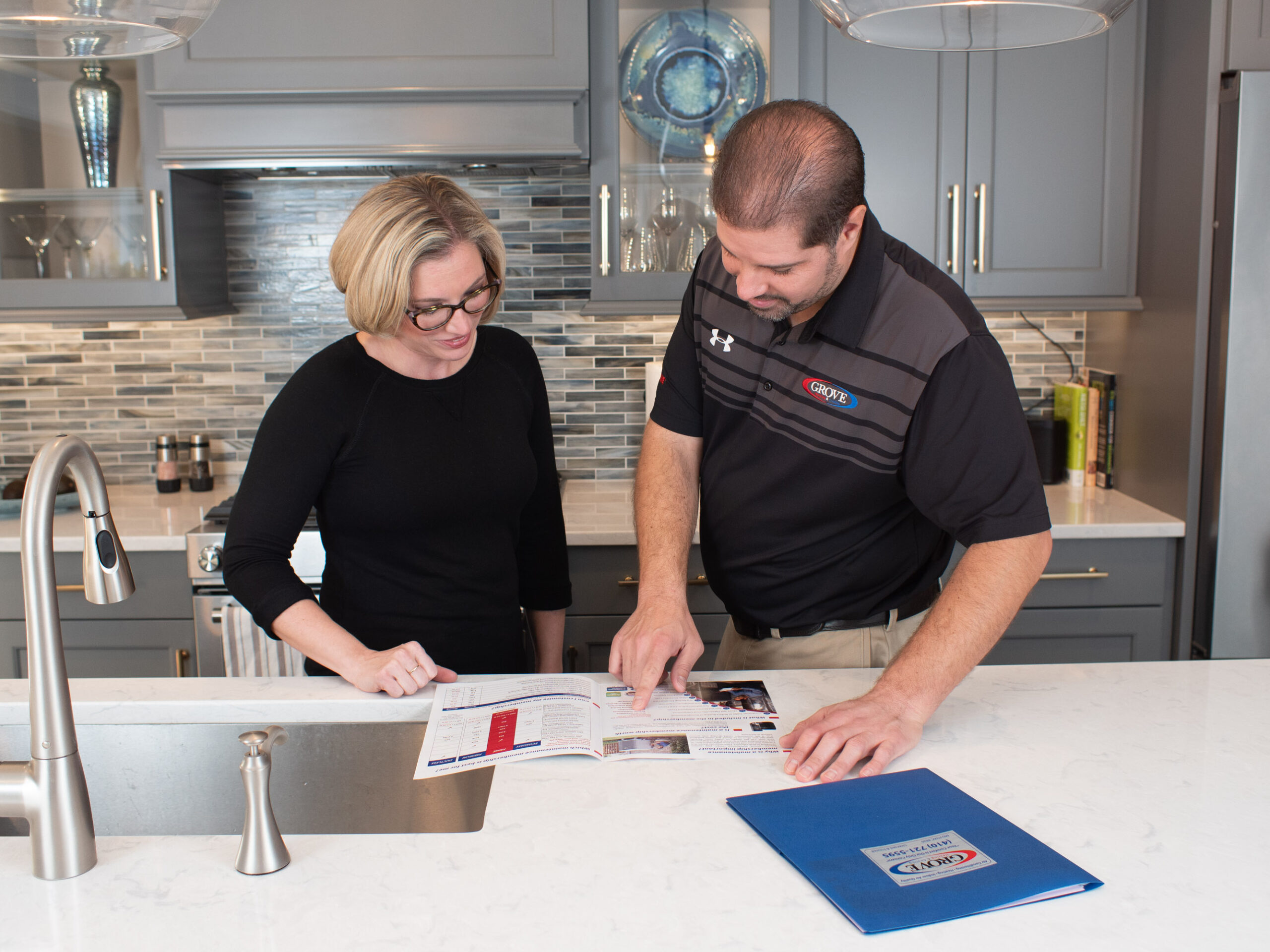There’s nothing worse than your air conditioner failing on a hot, humid day in Maryland. You adjust the thermostat, but warm air is blowing from the vents—or maybe there’s no air at all. Before you panic and call for AC repair, take a deep breath. Some air conditioning issues have simple fixes that you can handle on your own, saving you time and money.
By troubleshooting your AC unit, you might uncover a tripped breaker, a clogged filter, or even an incorrectly set thermostat—problems that don’t require professional repair. But when the issue is more serious, knowing what’s wrong can help you explain the situation to an HVAC technician, leading to faster and more effective service.
Check out these simple troubleshooting steps you can try, and find out when it’s time to call Grove Heating & Cooling for expert air conditioning repair.

If your air conditioner suddenly stops working, don’t assume the worst. Before calling for repairs, start with a few basic checks that could quickly resolve the issue.
It might seem obvious, but sometimes the thermostat is accidentally set to “heat” instead of “cool,” or the temperature setting isn’t low enough to trigger the AC. Make sure the thermostat is on “cool,” and set it a few degrees lower than the current room temperature. Also, check if the batteries (if applicable) need replacing.
A power surge or overload could trip the breaker, cutting power to your AC. Locate your electrical panel and check if the breaker for the air conditioner has flipped. If it has, reset it and see if the AC starts running again.
A clogged or dirty air filter can restrict airflow and cause the system to shut down or struggle to cool your home. If your filter looks dirty, replace it with a clean one and see if the AC starts working properly.
Blocked or closed vents can prevent cool air from circulating throughout your home. Make sure all vents are open and free from obstructions like furniture, curtains, or rugs.
Step outside and inspect the AC condenser unit. If it’s not running, check for debris blocking the fan or listen for unusual noises. If the unit isn’t turning on at all, it may indicate a power issue like a blown fuse or capacitor.
To check if the AC fuses are blown, first, turn off the power to the AC unit at the breaker for safety. Then, carefully open the disconnect box and inspect the fuses. If they appear blackened or the metal filament inside is broken, they are likely blown and need replacement. You can also use a multimeter to test for continuity—if there’s no reading, the fuse is bad.
If you’re unsure or uncomfortable handling electrical components, it’s best to call Grove Heating & Cooling for professional AC repair.
A clogged condensate drain line can cause your air conditioner to shut off as a safety precaution. Look for standing water near the indoor unit or check the drain pipe for blockages. You can try clearing it using a wet/dry vacuum or a mixture of vinegar and water.
If your AC is running but not cooling, check the indoor unit for ice buildup on the evaporator coils. This could be caused by restricted airflow or low refrigerant levels. Turn off the system and let the ice thaw before restarting—if the problem continues, call Grove Heating & Cooling for AC repair.
If you’ve gone through all the troubleshooting steps and your air conditioner still isn’t working properly, you should turn off the AC unit and call Grove Heating & Cooling for professional AC repair. Some issues, like refrigerant leaks, faulty capacitors, or compressor failures, require specialized tools and expertise to fix. Ignoring ongoing problems can lead to higher energy bills, reduced comfort, and even more costly air conditioner repairs down the road.
Whether your AC won’t turn on, isn’t cooling efficiently, or is making unusual noises, our expert technicians are ready to diagnose and fix the issue quickly. Contact us today, and we’ll get your air conditioning system back up and running in no time.
